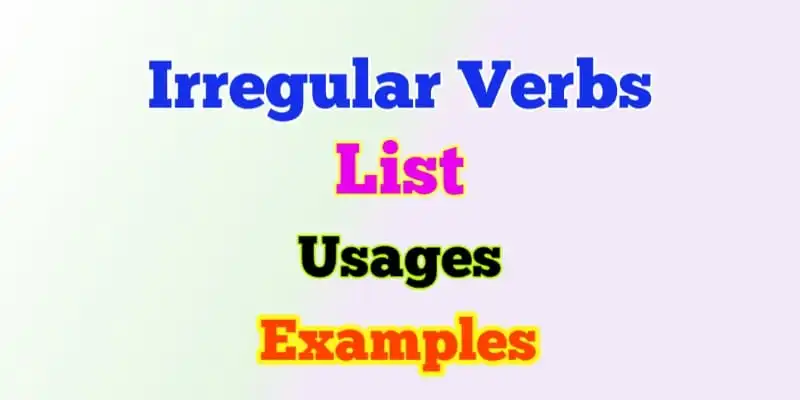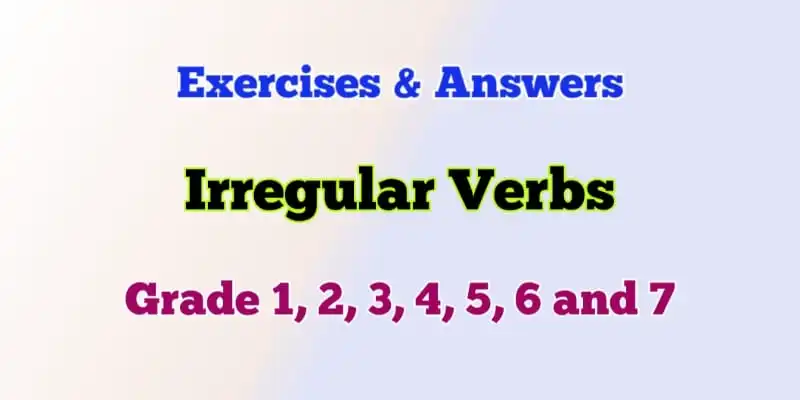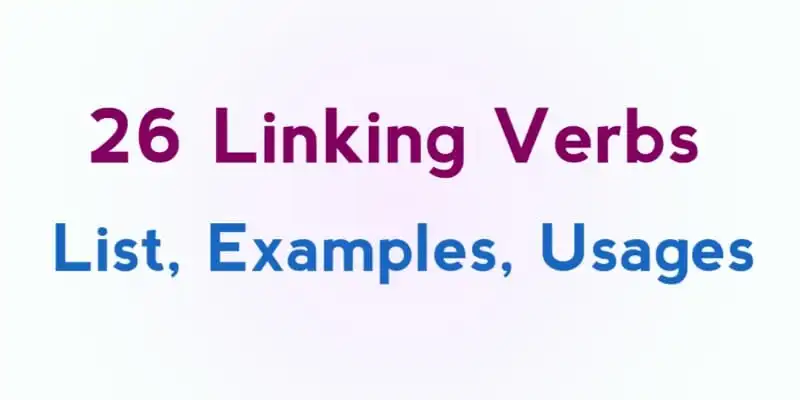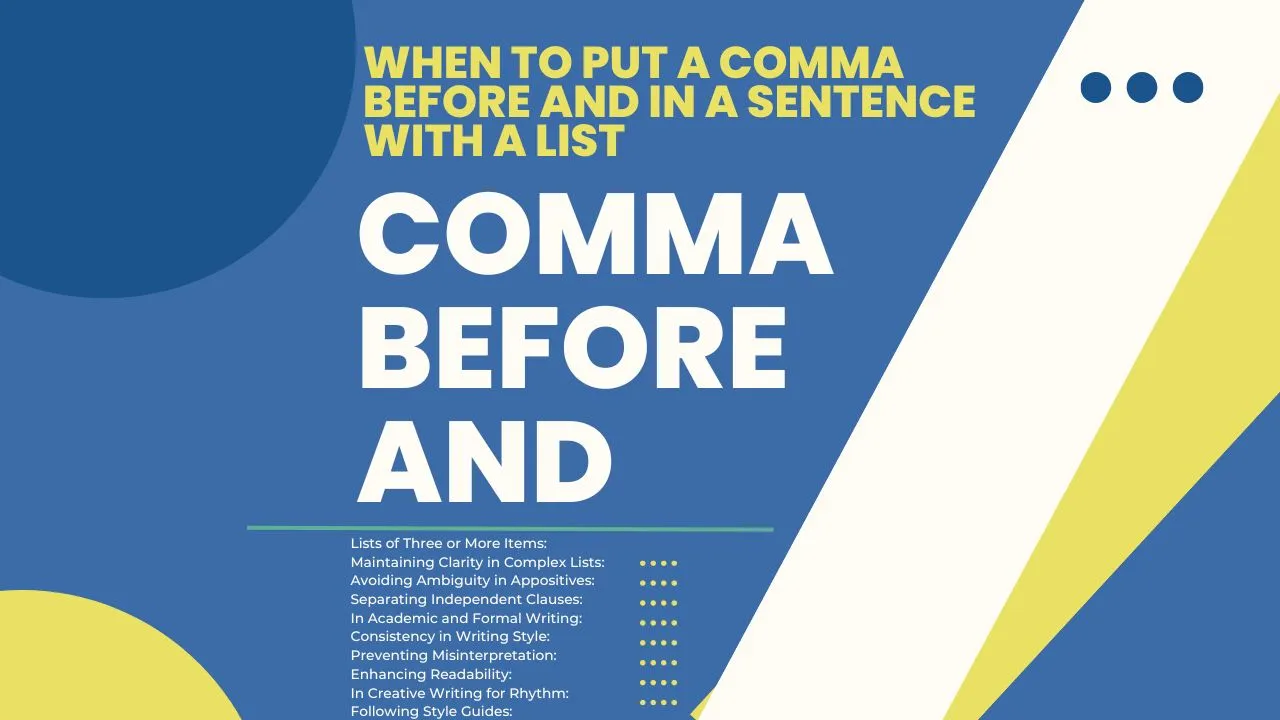Explore the world of irregular verbs list providing you with over 100 irregular verbs along with examples in English.
What is an Irregular Verb?
An irregular verb in English is a verb that does not follow the regular conjugation pattern (i.e., to change its vowels) for forming its past tense and past participle. Irregular verbs have unique, often unpredictable changes in their forms.
For example:
1. Go: The base form is “go,” the past tense is “went,” and the past participle is “gone.”
2. Eat: The base form is “eat,” the past tense is “ate,” and the past participle is “eaten.”
3. Swim: The base form is “swim,” the past tense is “swam,” and the past participle is “swum.”
Why Irregular verbs list are important
Irregular verbs are important in the English language for several reasons:
1. Accuracy in Communication:
2. Verb Tense and Aspect:
3. Literary and Expressive Writing:
4. Idiomatic Expressions:
5. Historical and Cultural Significance:
6. Language Proficiency:
7. Formality and Register:
100+ List of Irregular Verbs in English
Here is a list of over 100 irregular verbs in English, presented in a table format with their base form, past tense, and past participle:
| Base/ Form(1st Form) V1 | Past Tense(2nd Form) V2 | Past Participle(3rd Form) V3 |
| Abide | abode | abode |
| Arise | arose | arisen |
| Awake | awoke | awoke/awoken |
| Be | was/were | been |
| Begin | began | begun |
| Break | broke | broken |
| Build | built | built |
| Buy | bought | bought |
| Choose | chose | chosen |
| Come | came | come to |
| Do | did | done |
| Drink | drank | drunk |
| Drive | drove | driven |
| Eat | ate | eaten |
| Fall | fell | fallen |
| Find | found | found |
| Fly | flew | flown |
| Forget | forgot | forgotten/forgot |
| Get | got | got/gotten |
| Go | went | gone |
| Have | had | had |
| Know | knew | known |
| Leave | left | left |
| Make | made | made |
| Run | ran | run |
| Say | said | said |
| See | saw | seen |
| Sing | sang | sung |
| Sleep | slept | slept |
| Speak | spoke | spoken |
| Swim | swam | swum |
| Take | took | taken |
| Think | thought | thought |
| Write | wrote | written |
| Arise | arose | arisen |
| Awake | awoke | awoken |
| Bear | bore | born/borne |
| Beat | beat | beaten |
| Become | became | become |
| Begin | began | begun |
| Bend | bent | bent |
| Bet | bet | bet |
| Bind | bound | bound |
| Bite | bit | bitten |
| Bleed | bled | bled |
| Blow | blew | blown |
| Break | broke | broken |
| Breed | bred | bred |
| Bring | brought | brought |
| Build | built | built |
| Burn | burned/burnt | burned/burnt |
| Burst | burst | burst |
| Buy | bought | bought |
| Catch | caught | caught |
| Choose | chose | chosen |
| Cling | clung | clung |
| Come | came | come |
| Cost | cost | cost |
| Creep | crept | crept |
| Cut | cut | cut |
| Deal | dealt | dealt |
| Dig | dug | dug |
| Dive | dived | dived |
| Do | did | done |
| Draw | drew | drawn |
| Dream | dreamt/dreamed | dreamt/dreamed |
| Drive | drove | driven |
| Eat | ate | eaten |
| Fall | fell | fallen |
| Feed | fed | fed |
| Feel | felt | felt |
| Fight | fought | fought |
| Find | found | found |
| Fly | flew | flown |
| Forbid | forbade | forbidden |
| Forget | forgot | forgotten |
| Forgive | forgave | forgiven |
| Freeze | froze | frozen |
| Get | got | got/gotten |
| Give | gave | given |
| Go | went | gone |
| Grind | ground | ground |
| Grow | grew | grown |
| Hang | hung | hung |
| Have | had | had |
| Hear | heard | heard |
| Hide | hid | hidden |
| Hit | hit | hit |
| Hold | held | held |
| Hurt | hurt | hurt |
| Keep | kept | kept |
| Kneel | knelt | knelt |
| Know | knew | known |
| Lay | laid | laid |
| Lead | led | led |
| Leave | left | left |
| Lie | lay | lain |
| Lose | lost | lost |
| Make | made | made |
| Mean | meant | meant |
| Meet | met | met |
| Pay | paid | paid |
| Put | put | put |
| Read | read | read |
| Ride | rode | ridden |
| Ring | rang | rung |
| Rise | rose | risen |
| Run | ran | run |
| Say | said | said |
| See | saw | seen |
| Seek | sought | sought |
| Sell | sold | sold |
| Send | sent | sent |
| Set | set | set |
| Shake | shook | shaken |
| Shine | shone | shone |
| Shoot | shot | shot |
| Show | showed | shown |
| Shrink | shrank | shrunk |
| Sing | sang | sung |
| Sink | sank | sunk |
| Sit | sat | sat |
| Sleep | slept | slept |
| Slide | slid | slid |
| Speak | spoke | spoken |
| Spend | spent | spent |
| Spin | spun | spun |
| Spread | spread | spread |
| Spring | sprang | sprung |
| Stand | stood | stood |
| Steal | stole | stolen |
| Stick | stuck | stuck |
| Sting | stung | stung |
| Strive | strove | striven |
| Swear | swore | sworn |
| Sweep | swept | swept |
| Swim | swam | swum |
| Swing | swung | swung |
| Take | took | taken |
| Teach | taught | taught |
| Tear | tore | torn |
| Tell | told | told |
| Think | thought | thought |
| Thrive | thrived/throve | thrived/thriven |
| Throw | threw | thrown |
| Understand | understood | understood |
| Wake | woke | woken |
| Wear | wore | worn |
| Weep | wept | wept |
| Win | won | won |
| Wind | wound | wound |
| Write | wrote | written |
Please note that this is a comprehensive list of irregular verbs in English, but there are more irregular verbs beyond these. Irregular verbs can be challenging to memorize due to their unique forms, so practice and repetition of the irregular verbs list can help improve your mastery of them.
If you have any specific questions about these verbs or need further assistance, please feel free to ask!
Some English Irregular Verbs list with Examples in Sentences
These sentences demonstrate the use of irregular verbs in various contexts, showcasing their unique past tense and past participle forms. Irregular verbs are an important aspect of English grammar and vocabulary.
Here are some examples of irregular verbs in English, along with sentences to illustrate their usage.
1. Go
Base Form: “I go to the store.”
Past Tense: “Yesterday, I went to the store.”
Past Participle: “I have gone to the store many times.”
2. Eat:
Base Form: “I eat breakfast every morning.”
Past Tense: “Yesterday, I ate pancakes for breakfast.”
Past Participle: “I have eaten at that restaurant before.”
3. Swim:
Base Form: “She swims in the pool every summer.”
Past Tense: “Last weekend, she swam in the ocean.”
Past Participle: “She has swum in many different bodies of water.”
4. Take:
Base Form: “I take the bus to work.”
Past Tense: “Yesterday, I took a taxi to the airport.”
Past Participle: “I have taken that same route many times.”
5. Drink:
Base Form: “They drink water during their workouts.”
Past Tense: “Last night, they drank juice with dinner.”
Past Participle: “They have drunk various types of beverages.”
6. Break:
Base Form: “Don’t break the glass!”
Past Tense: “He accidentally broke the vase.”
Past Participle: “The vase has been broken for weeks.”
7. Begin:
Base Form: “We begin the meeting at 9 AM.”
Past Tense: “Yesterday, we began the project.”
Past Participle: “We have begun work on this new initiative.”
8. Ring:
Base Form: “The phone rings when someone calls.”
Past Tense: “Last night, the phone rang several times.”
Past Participle: “The phone has rung constantly today.”
9. Drive:
Base Form: “She drives to school every day.”
Past Tense: “Last week, she drove to the beach.”
Past Participle: “She has driven across the country.”
10. Sing:
Base Form: “They sing beautifully in the choir.”
Past Tense: “Last night, they sang a lovely song.”
Past Participle: “They have sung at many different events.”
These sentences demonstrate the use of irregular verbs in various contexts, showcasing their unique past tense and past participle forms. Irregular verbs are an important aspect of English grammar and vocabulary.
FAQs on Irregular Verbs
What is an irregular verb?
An irregular verb is a type of verb in the English language that does not follow the regular pattern for verb conjugation (i.e., adding ‘ed’ to form past and past participle form unlike regular verbs). But an irregular verb changes its vowels to form past and past participle forms.
Examples of irregular verbs include “go” (base form), “went” (past tense), and “gone” (past participle), or “eat” (base form), “ate” (past tense), and “eaten” (past participle). These verbs have forms that do not follow the typical “-ed” pattern seen in regular verbs like “walked” or “talked.”
Can you explain why irregular verbs are called “irregular”?
Irregular verbs are called “irregular” because they do not follow the standard pattern for verb conjugation in English. Instead of adding “-ed” to the base form to create the past tense and past participle, irregular verbs have unique and often unpredictable forms.
How can I memorize irregular verbs more easily?
One effective way to memorize irregular verbs is through practice and repetition. Create flashcards with the base form, past tense, and past participle of each verb, and review them regularly. Additionally, use irregular verbs in sentences to reinforce your memory.
Are there any patterns or rules for irregular verbs?
While irregular verbs do not follow a consistent pattern, some groups of irregular verbs share similarities in their forms. For example, some verbs change their vowel sounds (e.g., sing-sang-sung), while others have the same form for the past tense and past participle (e.g., put-put-put). However, these patterns are not universal, so memorization is key.
Can you provide more examples of irregular verbs in sentences?
Certainly! Here are a few more examples of irregular verbs in sentences:
- Break: “She accidentally broke the vase.”
- Build: “They built a beautiful house by the beach.”
- Drive: “He drove all night to reach his destination.”







